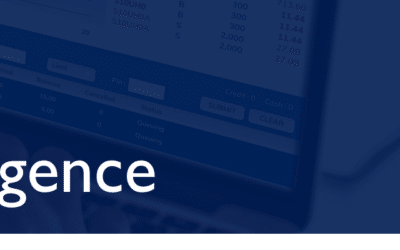Indigenous recognition in the Constitution, climate policy, environmental causes, domestic violence and many other social issues are being embraced by big business in ways that would have been unthinkable a generation ago.
As a modern business leader, when you see some of your peers jumping on board with big social issues, do you wonder – should I do that?
There are many answers – from yes; to no; to maybe, but not yet. And these can all be valid responses, because one thing is certain: if your business adopts an issue and you don’t do it properly, you will come unstuck. Any sign of weakness or hypocrisy will be ruthlessly exposed, especially on social media, from where things can quickly get out of control.
Taking a strong public position on a social issue can be a galvanising action for a businesses’ stakeholders, whether they are employees, shareholders or customers, but it is not without risk. Doing it properly requires doing the same work you would do when making any important business decision. Here are some questions to ask yourself before taking the leap.
Are we credible on this issue?
When people look at your organisation, will they see some real, historical actions that make sense in the context of the stand you are taking today?
Take Indigenous Recognition, which a number of mining and other resource companies, in particular, have embraced. For the most part these organisations have a long history of dealing with Australia’s Indigenous people. BHP has worked closely with Indigenous communities for many decades, has more than 900 Australian Indigenous employees, and was one of the first companies to commit to a Reconciliation Action Plan in 2007. When BHP speaks about Indigenous issues, it speaks with deep experience and authenticity. Constitutional Recognition is a good fit.
Does it make business sense?
Qantas chief Alan Joyce took on marriage equality during the debate on the issue in Australia during 2017. Joyce had unique credentials, as the openly gay CEO of one of Australia’s biggest brands. But he also had a business case.
As a consumer facing brand, Qantas wants to welcome all potential customers, and with opinion polls showing he would be on the right side of history when Australia voted in the plebiscite, Joyce was on solid ground.
Who is going to hate it?
Conservative critics do not take kindly to companies adopting progressive causes. Both the Qantas and BHP CEOs have been taken to task in the op-ed pages of our major broadsheet newspaper over their stands on social issues. Qantas was also singled out for its role in the Israel Folau drama with Rugby Australia. But both Joyce and BHP head Andrew McKenzie have stuck to their guns, firm of the view that what they are doing is right for their companies’ shareholders, employees and customers.
Causes don’t have to be progressive either. Gina Rinehart – Australia’s richest woman, who has built Hancock Prospecting into one of our biggest iron ore exporters – is well known for her continued calls for smaller government, less red tape and for questioning the climate change agenda.
Her wealthy status, mining background, strong views and relatively low public profile have made her something of a hate figure among the left in Australia. But Ms Rinehart continues on, successfully growing her iron ore and cattle businesses with the support of investors and other important stakeholders.
If you are going to take a stand, you need to understand who might be upset with it, what their reaction might be, and how you are going to manage it. Is it proactive stakeholder engagement – to help critics understand, and maybe get on board? Or can you leave the critics behind, and move on to some new corporate friends and customers?
How do we communicate it?
Let’s say you’ve done your due diligence and decided it’s time to take a stand. Like any major business decision, you need to understand what could go right, what could go wrong, and how you will manage those scenarios. It means preparing your Board, and those external stakeholders who might be affected by your position, so they know where you are coming from and why it is important.
You need to check your blind spots too, and either fix them, or be ready to acknowledge them. Every company has them. Qantas partners with Emirates, owned by the UAE Government; not a great place to campaign for marriage equality. Our big miners are well-respected for their engagement with Indigenous communities today, but this has not always been the case. You need to remember we are dealing with the real, messy world of humanity, where inconsistencies abound, but progress can be made.
And finally, you need to be prepared to not only hear some noise, you need to be prepared to make some as well.
To do this, get clever and creative with your message. Use social media. Get your staff on board. If the circumstances allow, make it fun. And as Taylor Swift would say – the haters gonna hate – so be prepared to just Shake It Off.


